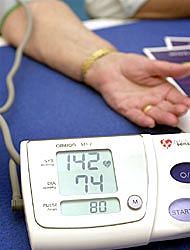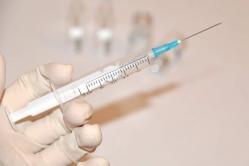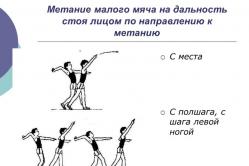Antipyretics for children are prescribed by a pediatrician. But there are emergency situations for fever when the child needs to be given medicine immediately. Then the parents take responsibility and use antipyretic drugs. What is allowed to give to infants? How can you bring down the temperature in older children? What medicines are the safest?
Most people will immediately answer this question: normal arterial pressure of course it is 120 to 70 mmHg. Blood pressure above 120/70 is considered elevated.
Right? Yes and no. The numbers 120/70 are real good, ideal pressure. In the event that you are young, if you are 20 years old, you do not have a single gram of excess weight, and if you are preparing for astronauts.
But if you are 30-35 years old, or you are a little overweight, or move a little, then your normal pressure is 130/80. Although 120/70 is also good, even better. But there is absolutely no need to worry about the difference of plus or minus 10 units.
Well, what about the "terrible" 140/90? Is it a lot or not?
At 20 years old, 140/90 is really a bit much. This indicates a tendency to high blood pressure, a tendency to hypertension. But it's not yet a disaster. I repeat, at the age of 20, 140/90 is only a harbinger of possible future troubles.
But at the age of 40 years and older, 140/90 is the norm! Normal pressure! Moreover, this is the alphabet, this is taught in the second year of medical school!
After all, over the years pressure rises almost any person, especially if he is not a blessed Buddhist monk living high in the mountains. And already in the second year of medical institutes, future doctors are taught that starting from the age of 40-45, pressure of 130/80 - 140/90 is considered normal.
And you need to bring down the pressure only if it has risen above 150/90 or 150/100.
Apparently, someone is studying at the institute carelessly. Or too zombified by representatives of pharmaceutical companies. And, having become a doctor, the former student forgets about what he was taught in medical school.
“Ah,” he says to his 50-year-old patient, “you are 140/90, you need to urgently take pills. And that horror-horror-horror!”
I am clarifying. Because of 140 by 90 there will be no horror. None. And you don't need to shoot down 140/90. And even 150/90 is not necessary to shoot down. Especially if your body tolerates them calmly.
Now, if the pressure has risen to 160, and especially if it continues to grow, it is worth taking action. But it is not necessary to immediately drink pills, there are other options. We will talk about them below.
In the meantime, let's answer the following question (even several questions at once):
Are you sure you know your blood pressure? Are you sure you know how to measure pressure correctly? And doctors - do they always measure blood pressure correctly?
Something we got too many questions at once. Not good. Let's try to summarize all these questions into one.
Section Leads
Honored Doctor of Russia,
Doctor of Medical Sciences,
Professor Radchenko Valery Grigorievich
|
The kidneys are always involved in the regulation of blood pressure! Often, having discovered high blood pressure (BP), they rush to bring it back to normal with the help of any medicines. From the standpoint of the resource approach, this practice is not entirely correct and can lead to a deterioration in kidney function and the development of secondary adverse effects. It is well known in medical science that kidney function improves with increasing systolic blood pressure and that the kidneys are the only organ that needs high pressure to filter the blood. At very low, less than 80 mm Hg. the kidneys stop filtering. A prolonged, significant, artificial decrease in blood pressure will adversely affect the entire body, increase the risk of complications and transition arterial hypertension V chronic form. Since the kidneys are always involved in the regulation of blood pressure, it is very important to improve kidney function. |
How to improve kidney function.
A number of medical studies have shown that phonation of the kidney area significantly improves their function and accelerates the normalization of blood pressure. Phonation is a simple, comfortable and natural procedure for the body, performed independently at home in order to compensate for the deficiency of biological microvibrations in the tissues of the body. The phonation technique has been worked out and has been successfully used for many years. Efficiency and well-being increase after the first procedures. The pressure also decreases sometimes after several sessions, sometimes after several months, depending on the stage of hypertension and the duration of the artificial decrease in blood pressure. After a month of procedures, there is a decrease in blood cholesterol. The effectiveness of the method is proportional to the number of procedures performed. In most cases, blood pressure reduction is achieved with the help of methods No. 1. Vibrosound treatment of the kidney area significantly increases efficiency, but despite this, in order to achieve a stable result, one should not increase the load on the body in the first few months.
Loads to be controlled.
- Duration and intensity of physical activity. Even in a young healthy organism, the upper arterial pressure rises to 180 mm Hg. and more when performing intensive muscular work.
- Frequency, intensity and duration of stress. When stressed, the muscles go into static tension, which can last for several hours and even days. Stress in terms of muscle energy consumption per day is comparable to intense physical work.
- Length of stay in the cold. Cooling the body leads to an increase in overall muscle tone and additional stress on the kidneys.
- Body mass. Its increase proportionally increases the average daily muscle activity for movement and coordination.
- Spine condition. The main defense of the spine is the back muscles. Weakened discs, intervertebral hernia - require a constant increased tone of the back muscles.
Important! All these loads add up, therefore, if possible, their increase should be prevented, and if this occurs, it is recommended to perform an additional procedure of vibrosound of the kidney area on the same day.
Questions and answers.
Question: Is it necessary to take a break in the phonation of the kidneys, if the pressure has returned to normal?
Answer: Since blood pressure has already risen, long breaks of more than 3 months are not desirable. With age, kidney function weakens, and the load, as a rule, increases. Phonation of the kidney area is recommended even at a young age, as a prophylaxis after physical exertion, hypothermia and stress. In the elderly, it is enough to conduct 3-5 phonation sessions per week.
Question: Can blood pressure increase during phonation of the kidney area.
Answer: This is possible in two cases:
· If there has been a prolonged inadequate passion for antihypertensive drugs. The phonation technique in this case requires a much more gradual increase in the procedure time. Sometimes at the initial stage, phonation has to be performed every other day.
· If the cause of hypertension is vascular insufficiency of the spinal cord or brain. At the same time, blood pressure (without treatment) in the morning is noticeably higher than in the evening, and phonation of the kidney area leads to a temporary (for 2-3 hours) increase in blood pressure by another 10-20 units. In this case, it is more efficient technique number 2.
Question: What other reasons can cause an increase in blood pressure.
Answer: Hypertension may develop due to heart failure. Kidney function is determined by the average effective per cardiac cycle blood pressure in the renal artery. If the heart is defective mitral valve, then insufficient blood will flow into the aorta (small cardiac output). As a result, aortic pressure drops rapidly and upper arterial pressure rises to maintain an average effective pressure level for the kidneys. Phosphonation of the kidney area in this case leads to a decrease in blood pressure.
Stenosis renal arteries can cause a significant increase in blood pressure, which does not go astray. Vibrosound of the kidney area reduces the severity of the problem, but also does not eliminate the cause. The radical solution is surgical. The installed stand gives effect for several years. Sometimes they resort to the removal of one kidney if the second kidney is healthy and the vessels are not narrowed.
 A very important question is to what level it is necessary to reduce the pressure. If the patient's blood pressure is above 140/90 mm Hg, then the frequency of complications such as stroke and myocardial infarction. In the USA, the classification characteristic of normal pressure is 130/80 mm Hg, higher is already a deviation.
A very important question is to what level it is necessary to reduce the pressure. If the patient's blood pressure is above 140/90 mm Hg, then the frequency of complications such as stroke and myocardial infarction. In the USA, the classification characteristic of normal pressure is 130/80 mm Hg, higher is already a deviation.
Blood pressure is not formed in some way, but is purposefully maintained by the body at a certain value. To maintain pressure, the body spends resources, and the higher the blood pressure, the more they are required. The question is, why does the body need an increase in blood pressure?
Let us remember that even with absolutely healthy person with intense physical activity, systolic (upper) blood pressure increases from 110 mm Hg. up to 180 mm Hg and more. Such an increase is necessary for the kidneys, on which the load for processing the products of muscle activity falls. With an increase in systolic pressure, kidney function increases. That is, one of the reasons for the increase in blood pressure is the insufficiency of kidney function at normal pressure for a given muscle activity. Also, under stress, the background muscle activity (muscle tone) exceeds the norm by 2 times.
Even if there is no stress, there is no physical activity in the usual sense, but there are problems with the spine, to compensate for which the body has built up a muscular corset and keeps it in good shape - this is another reason for the increase in blood pressure. With age, the number of healthy functional kidney cells decreases and this is also the reason for the increase in systolic blood pressure.
That is, in a chronic increase in systolic blood pressure, a decisive role is played by the insufficiency of kidney function at normal pressure. It becomes sufficient only at elevated pressure.
If we artificially bring down blood pressure, then problems will begin to accumulate in the body and there will be a risk of other diseases. At the same time, the long-term existence of arterial hypertension leads to the development of complications. They are expressed in thickening of the walls of blood vessels, hypertrophy of the ventricles of the heart, atherosclerosis of the vessels. This whole complex of complications is called hypertension. Fearing a heart attack or stroke, sometimes excessively reduce blood pressure. It is not right.
The optimum criterion is the best health and performance. In addition, the heart does not form an upper pressure. It is provided by the aorta. High upper pressure is not a burden on the heart. Before each cardiac output, the aorta relaxes and the heart easily ejects blood into the aorta. The valve in the aorta closes and the aorta begins to develop pressure in the vessels. The aorta is more powerful than the heart and is adapted to create pressure.
The heart fundamentally cannot simultaneously develop 60 mm Hg in the vessels of the pulmonary circulation. Art. and in the arteries great circle 120-180 mmHg The heart has to overcome only the lower residual pressure in the aorta, and here it is important for the heart. It is better if it is 70 mm Hg, because already 90 mm Hg. significant stress on the heart. An increase in diastolic pressure increases the risk of myocardial infarction.
Chronically high blood pressure is not good, but it is also bad if it is brought down excessively.
A more correct solution is to improve kidney function and then, after some time, the body itself will lower blood pressure. There are scientific developments that allow to achieve an improvement in kidney function with the help of vibroacoustic devices.
Designed also unique and very effective treatment for hypertension, which allows you to change the direction of blood flow without surgery and anesthesia and reduce the amount of hormones that provoke a jump in blood pressure and vascular spasm.
The essence of the unique method is a painless puncture femoral vein, during which, under X-ray control, miniature spirals coated with Teflon are inserted into the central veins of the adrenal glands. Thanks to such manipulation in the adrenal glands, the blood flow changes, the overproduced aldosterone and other stress hormones are dumped into the liver, where they are destroyed and relieve hypertension from suffering for many years.
IF YOU HAVE HIGH BLOOD PRESSURE…
SOME SIMPLE TIPS HOW TO LOWER BLOOD PRESSURE AND BE HEALTHY
Tatyana Alekseevna Petrichko,
head Department of AFP and Preventive Medicine
KGBOU DPO IPKSZ, MD
arterial hypertension - one of the most common chronic diseases of our time. Currently, about 40% of the population in Russia suffer from arterial hypertension. In many patients, arterial hypertension can be asymptomatic for a long time, without affecting overall well-being. With the long-term course of this disease, the body gradually adapts to high pressure, and the person's well-being can remain relatively good. At the same time, high blood pressure has an adverse effect on blood vessels And internal organs: brain, heart, kidneys. This often leads to serious complications such as stroke, ischemic disease heart (angina pectoris), myocardial infarction, heart and kidney failure.
Remember! Arterial hypertension is a chronic disease that constantly and steadily progresses in the absence of treatment. However, this disease can be controlled! To effectively lower blood pressure and the risk of cardiovascular complications, it is important to take your medications regularly and maintain healthy lifestyle life.
What should be done if high blood pressure is detected?
If you find an increase in blood pressure, you should immediately consult a doctor to identify the cause of the disease and determine the tactics of treatment.
Remember! In no case should you self-medicate. You can not listen to the advice of friends and relatives suffering from arterial hypertension and use the same medications that they take for treatment. Since the cause and course of the disease is different for each person, the treatment for some may be beneficial, while for others it is useless or even harmful. Only a doctor can determine the necessary tactics of therapeutic measures for each patient.
How to start treatment for high blood pressure?
In order to prevent the occurrence or progression of existing arterial hypertension, it is necessary to reduce body weight, give up some bad habits, such as smoking, alcohol abuse, excessive salt intake.
Proper nutrition and physical exercise- this is the basis of treatment, but nevertheless, in some patients, the pressure decreases, but remains above safe limits, what to do in this case?
Take antihypertensive drugs - medicines that lower blood pressure.
When should you start taking the pills?
If arterial hypertension is stable (that is, does not decrease on its own) for 2-3 weeks, despite salt restriction, proper nutrition, exercise, weight loss BP remains above the safe level - 140/90 mm Hg. it is necessary to start a constant intake of antihypertensive drugs selected by the doctor.
At what pressure should you constantly take the pills?
If your pressure is mostly above 140/90, even if it is 150/95, and especially if there are occasional crises, the pills should already be taken. The principle of treatment of arterial hypertension is that, while taking medications, the level of blood pressure does not go beyond normal values, one hundred creates conditions for the normal functioning of all vital organs and systems of the body.
What is the purpose of continuous antihypertensive therapy?
Always have safe pressure levels and no crises. Constant intake of antihypertensives is the only effective prevention of crises.
Remember! Arterial hypertension is a chronic disease and, like all chronic diseases requires constant and continuous treatment. Stopping the medication will inevitably lead to a relapse of high blood pressure and the development of complications.
Remember! You need to be treated not just to be treated, but to have a pressure at a safe level - 140/90.
What drug is needed?
This question should be answered only together with the doctor. Currently, for the treatment of hypertension, there is a large arsenal of medicines, divided into 5 groups of drugs. Each of these groups has its own contraindications, features of the appointment, depending on concomitant diseases, age, etc.
Groups of antihypertensive drugs
Igroup - Beta-blockers
atenolol, metoprolol, bisoprolol, betaxolol
IIgroup - Calcium antagonists
Nifedipine, amlodipine, lercanidipine, fellodipine, nitrondipine
IIIgroup - ACE inhibitors
captopril, enalopril, perendopril, lisinopril, phoztnopril
IVgroup - AT receptor blockers
Losartan, valsortan, eprosartan, telmisartan, olmesartan, azilsartan
Vgroup - Diuretics
Hypothiazide, indapamide
Remember! Only a doctor can prescribe medications and determine their dosages.
What do these drugs do?
On the factors on which the level of blood pressure depends, the main ones are already well known to you: spasm (narrowing) of blood vessels, increased work of the heart, fluid retention. Let's talk about this in a little more detail.
What determines the level of blood pressure?
Conditionally cardiovascular system can be represented as a closed system consisting of a tap, a tank and connecting pipes. Imagine that the tap performs the function of the heart, the tube is the arteries, and the tank is the entire body supplied with blood.
What factors stand out and how to influence them?
If liquid comes from the tap under pressure, then the pressure in the pipe will increase; This is where beta blockers come in.
If you reduce the lumen of the pipe, then the pressure will also increase; the lumen of the tube is increased by calcium antagonists, ACE inhibitors, AT-receptor blockers.
If you increase the amount of liquid in the tank, then the pressure in the system will also increase; diuretics can influence this factor.
Who decides on the drug group?
The doctor, taking into account the characteristics of your body and other factors, decides which group of drugs you should start treatment with.
How does he decide on dosage?
Usually, treatment is started with the smallest dose. You take it for 5-7 days and control the pressure in the diary Blood pressure should be measured at least 2 times a day, preferably at the same hours) . It usually goes down a bit. After 5 days the dose is increased and again within 5 days you continue to control the pressure. It will drop a little more. If the blood pressure has not become 140/90, then the dose continues to be gradually increased until the blood pressure reaches safe limits.
But what to do if the pressure still does not reach safe limits?
If the dose of the drug is brought to the maximum allowable, and the pressure has not reached 140/90 mm Hg, then the doctor has 2 options. The first is to cancel this drug and prescribe another from the same group or another group. The second is to reduce the dose of this drug and add a drug from another group.
How long does the selection process take?
It depends on how your body reacts to antihypertensives. Sometimes very quickly. Sometimes you have to try different and different options until you reach the main result - 140/90 mmHg.
What is required from you when choosing a dose?
Understanding the goals of this joint work with the doctor - achieving a pressure not higher than 140/90 mm Hg. and a normal life without vascular complications.
Regular measurement of blood pressure and keeping a diary. Without this, the work of dose selection turns into self-deception.
Can a doctor choose the right scheme without your participation?
Never. He makes any decision only, focusing on the reaction from the AD. This reaction can only be seen from the diaries. Without knowing your daily pressure readings, you cannot make the right decision.
Do I need to lower my blood pressure quickly?
If we are talking about a systematic selection of treatment, then no. Many patients have lived with high blood pressure for years. Its rapid decline can, on the contrary, lead to a deterioration in well-being.
What to do after you have achieved a safe pressure - 140/90?
Continue the same lifestyle (proper nutrition and physical exercise) and taking the selected antihypertensive regimen.
What happens if you stop taking the pills?
The pressure will begin to rise again, sometimes even in the form of a crisis.
What prevents the regular intake of pills?
One of common causes- Forgetting to take pills. To do this, there is a toothbrush rule - put the tablets next to the toothbrush, brushed your teeth and drank the tablets.
What are the side effects of antihypertensive drugs?
Each of the antihypertensive drugs can have side effects.
The likelihood of occurrence and severity of a side effect depends on the dose: the higher it is, the more likely the risk of developing side effects- that is why the doctor strives to prescribe the optimal doses of drugs.
The frequency of side effects and their severity may vary in different groups of drugs.
Remember! If you experience any new symptoms or discomfort while taking medication, you should consult your doctor.
Can you express your wishes to the doctor about the antihypertensives that will be recommended to you?
You can and should.
What are these wishes?
First, the frequency of reception. There are pills that need to be taken 1 or 2 times a day, and there are those that need to be taken 3 or 4.
Second, no side effects. If you have already taken some pills and did not tolerate them well, tell your doctor about it.
Third, cost. Available effective, easy to take from lows side effects drugs. But their cost is higher than similar drugs, which are inferior to them on separate points. There is no point in starting treatment with expensive pills if you cannot use them later. Although you should always remember that there is nothing more precious than health.
Fourth, the effectiveness of control. You can choose several schemes, calculate the cost of one day of treatment, compare which of them is more effective and choose the decision that you prefer.
What can best reduce the cost of treatment?
Proper nutrition and exercise. These factors can reduce blood pressure by 10-20 mm. If you do not adhere to them, then you will have to pay for extra pills.
Remember that the most precious thing is health. It is better to spend money on blood pressure control now, when you have no complications and there is an opportunity to earn them, than a much larger amount later, when they appear and make it impossible for you to work.
Remember! Treatment is a process, its success depends on both the doctor and the patient himself, as well as the characteristics of the drug, its tolerability and side effects. Therefore, knowledge of the essence of the disease, its main causes, factors influencing its development and course is a necessary component of the treatment complex. This is an important step towards maintaining health.
Buy account steam borderlands 2: borderlands 2 account buy keyking.ru.



